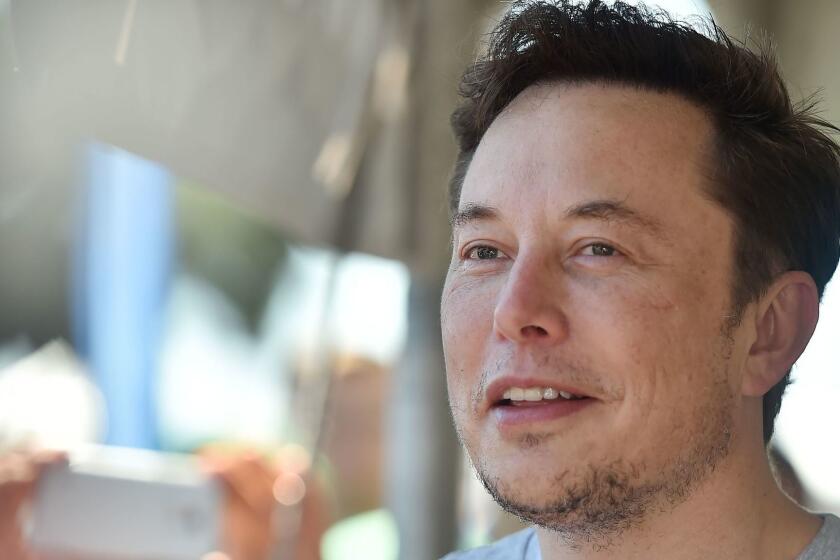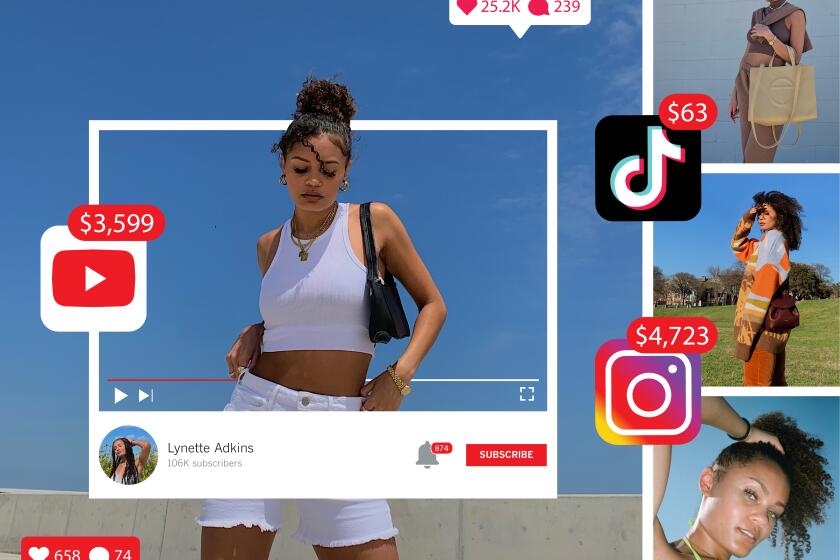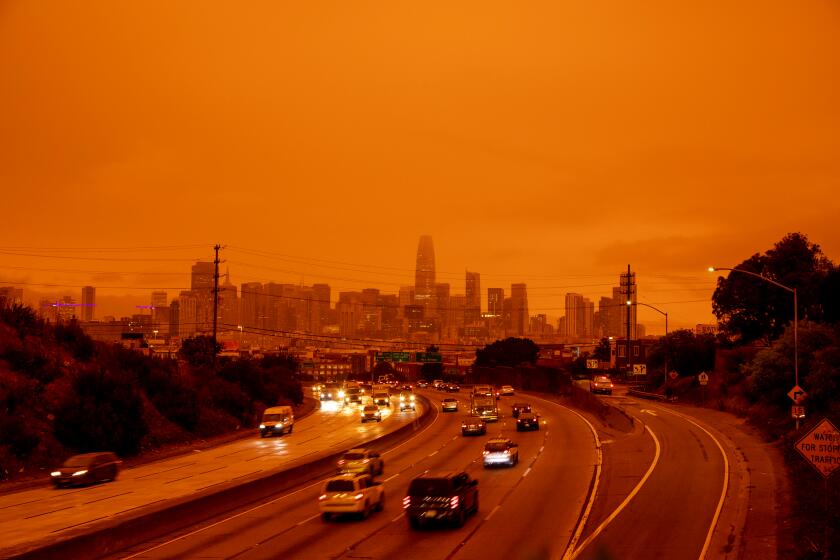Column: Elon Musk is not social media’s biggest problem

If you had to manufacture a hot-take contest topic, Elon Musk offering to buy Twitter would do just fine. Twitter thrives on disagreement, and few people are as divisive as Musk.
In that way, he mirrors Twitter itself — even people who use it religiously spend half their time complaining about how awful it is. (And Twitter is reportedly fighting Musk’s proposed takeover with a strategy known, fittingly enough, as a “poison pill.”)
In another way, the conversation is more important symbolically than specifically. Twitter is to social media what Musk is to capitalism — just one small piece of a much bigger issue.
Actually, that’s not quite fair to Musk. He is, in fact, the richest person on the planet, while Twitter is one of the least-used social media platforms. Only 22% of Americans have Twitter accounts (fewer than LinkedIn!), and most of those users don’t tweet very often.
But, like Musk, Twitter gets a disproportionate share of press because it is built for provocation. Subtlety has no home on Twitter, where everything is its own headline. Not surprisingly, it has become the preferred platform and source for news media (including this newspaper). So much so that New York Times executive editor Dean Baquet sent a recently leaked memo to staff advising them to spend less time on the site. “We can rely too much on Twitter as a reporting or feedback tool — which is especially harmful to our journalism when our feeds become echo chambers.”
No mention was made of Instagram, TikTok or even Facebook.
Tesla is not going private. Chief Executive Elon Musk said so Friday.
Given Musk’s history on Twitter, which he has used to lie about COVID-19, attack critics and get in trouble with the Securities and Exchange Commission , the concerns about him running the show seem justified. His vow to loosen constraints on the platform runs contrary to growing alarm about the role Twitter has played in, among other things, social media manipulation during the 2016 and 2020 presidential elections, the spread of extremist views and hate speech and the Jan. 6 attack on the Capitol.
But it isn’t just Twitter, or even mainly Twitter, that’s the concern. With or without Musk, social media has created a gray zone between public and private, between political and personal, to become the most pervasive and least-monitored force in American culture.
That raises all manner of questions about privacy, free speech, crime and consequences — none of which anyone, including the people making billions off the various social media sites, seem willing or able to answer.
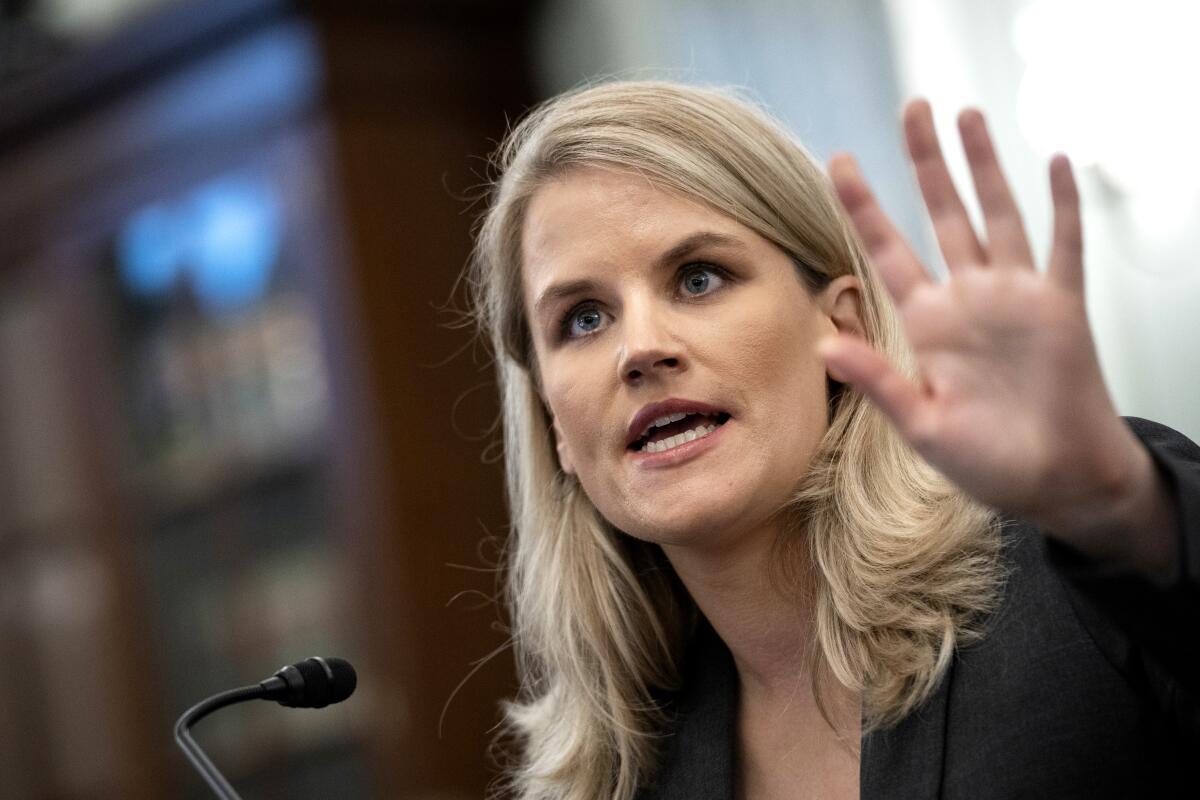
Oh, there’s been plenty of controversy, criticism, whistleblowing and Congressional hearings. Certain hate groups have been deplatformed, as well as some users, including former President Trump, who spread falsehoods about COVID-19. But the larger issue of how to prevent people from using a largely unregulated media industry to spread damaging messages remains pretty much in the hand-wringing stage.
The good social media does, that we are all willing to acknowledge: It’s a way to connect, to share observations and information quickly and widely, to give voice to those too often excluded from other forms of media. If Darnella Frazier had not posted her horrifying video of George Floyd’s murder by Derek Chauvin to Facebook, Chauvin would still be on the Minneapolis police force instead of in jail.
The bad? Well, who really wants to think about the Mueller report, which proved that Russian agents used Facebook and Twitter to disseminate misinformation during the 2016 presidential campaign, or the deaths caused by COVID-19 lies too often spread on Facebook, when they’re sharing a photo of their truly adorable new puppy?
Facebook has connected family, friends and lovers while also being being a favored gathering place for all manner of terrorists, white supremacists, COVID-19 deniers and insurrectionists. Instagram, Snapchat and TikTok have boosted businesses, made careers and kept visitors entertained and informed, while also causing anxiety and depression among many of their users, particularly young women.
On every site, for every moment of unity, there seem to be another two instances of extreme trolling. On every site, someone forgets that although they may be tapping from the privacy of their car or bathroom, what they post is going into the very public realm with alarming, often career-ending consequences.
If you’re like most of the world, you make time for following friends on social media.
So while I don’t think Musk would be a good choice for Twitter, at this point he is not social media’s biggest problem.
The biggest problem is that we all know all the downsides of social media and we all keep using it anyway. Sure, we complain about every aspect of it — the food and vacation porn, the vicious attacks, the manipulation by Russian bots. We nod ruefully when doctors tell us our insomnia/migraines/racing heart might improve if we stop doomscrolling at least an hour before bedtime. We tear up when we hear of yet another teenager driven to depression, or worse, by all those perfect lives and/or bullies she sees on Insta.
And then we pick up our phones for just one quick peek, which lasts an hour.
You can call it a brilliant business model or you can call it an addiction, but social media has made itself so indispensable to millions of Americans that they are willing to shrug away problems that would be seen as outrageous in any other industry.
The second-biggest problem is that we are still calling it “social” media, like it’s a cocktail party, or a school dance or a church gathering during strawberry season. (Dear St. John’s Lutheran Church in Westminster, Md.: I still miss those sundaes.)
There’s nothing “social” about a multibillion-dollar industry. Facebook made $9.2 billion in profits during the first three months of 2021 (making Mark Zuckerberg, like Musk, a pandemic profiteer). YouTube makes about $15 billion a year for parent company Google and in 2021, TikTok’s total revenue grew 70% to $58 billion.
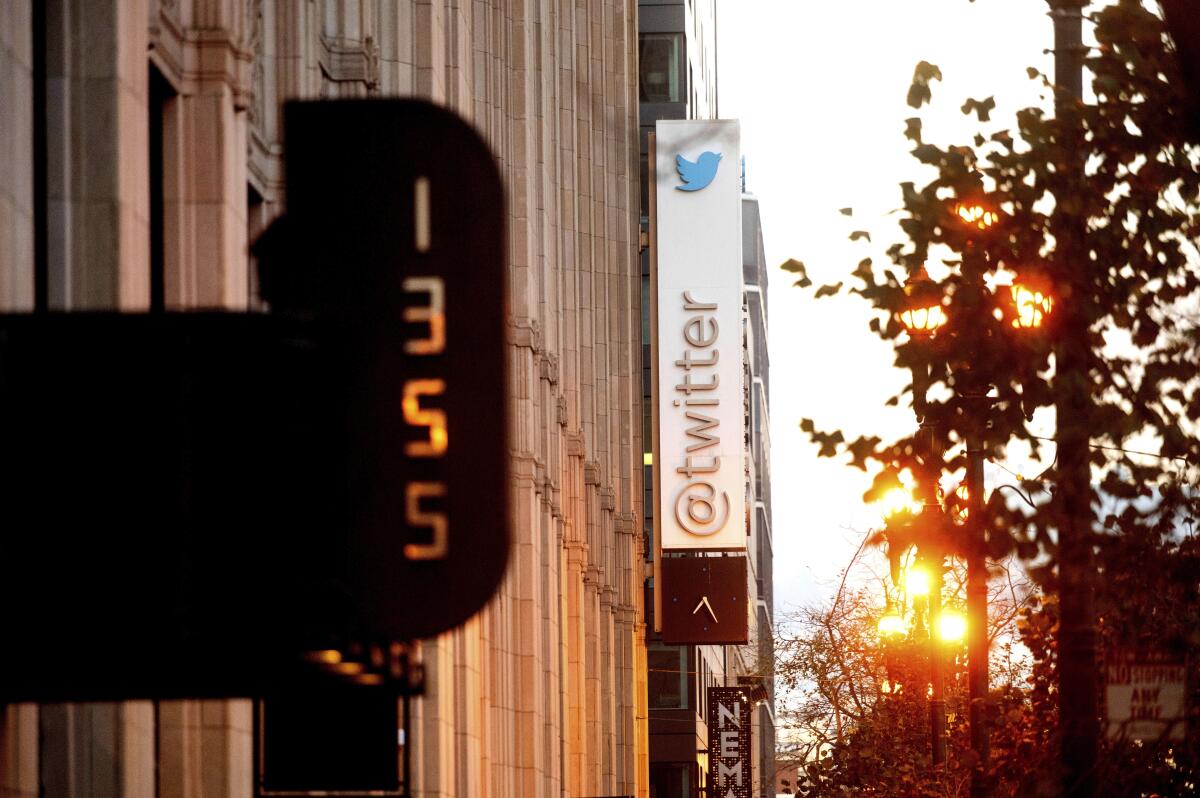
Twitter has been losing money in recent years, but that is certainly not the business plan; no social media platform is a philanthropic enterprise ( and Musk certainly understands this). They’re free because they are driven by advertisers competing for your eyeballs, your personal information, your buying history. And, increasingly, your ability to help make whatever site you are on a nexus of star-making, news and/or controversy. Because that’s what makes more people sign up.
I’m not saying that’s a good or bad thing. News media like The Times were once profitable enterprises funded in large part by advertisers, as are broadcast television networks and a million other things. I’m just saying it’s important to remember that social media is not a digital commune; people don’t become tech tycoons by simply offering you a space to chat with your old high school friends or get an agent by posting a music video.
They become tech tycoons by creating a media platform on which unpaid users do the work, for hours every day, and they sell ads against it.
There are, of course, content providers who make money from social media, artists who have been discovered through a viral video and a whole new profession of social media managers. But for the most part, it is an industry driven by unpaid freelancers.
Meet Lynette Adkins. She’s part of a new crop of creators focusing their content on the how-to of the business: making money from an online following.
Obviously, as a member of legacy media, I have my own biases. There are only so many advertising dollars and most of them are no longer going to legacy media. I am fortunate to have a job that pays me to write things. And for a journalist, social media has been in many ways an incredible boon. How else can you get so many people talking on the record about so many things — and more frankly than they might to a reporter?
Then again, would people say the same things if they were asked about them by a reporter, or indeed another actual human? The weird public-private space of social media requires abbreviated expressions of complicated emotions and complex events. People come to it with wildly different intentions and varying degrees of sincerity (and sobriety).
Sending thoughts, opinions or even facts out into the ether where they will be met with all manner of response from strangers always makes the sender and the responder vulnerable. Without any content oversight, it is what it is — world-changing and glorious or predatory, dangerous and sometimes criminal.
This would normally be the part of the column in which I offer concrete solutions, but I’m not certain I have any. Attempts to categorize social media empires as publishers rather than platforms, in which they would have legal responsibility for what they publish, have thus far been unsuccessful, in part, because it would irrevocably change the nature of the beast.
Normally, I resist putting the solution to large social issues solely on the shoulders of already burdened individual, but this one may be on us.
Everything seems important until climate change hits the point of no return. Then we’ll be too busy dying from fire, flood and famine to care about Will Smith or whatever else we’re talking about.
This is not a call to “get off social media” — I will be tweeting and posting this column and, without a doubt, pictures of my adorable puppy in the near future. But let’s be mindful of the industry we are supporting, aware of what they are doing, or allowing to happen, in the places we may not see. Many of us already avoid certain companies because of where they invest or how they treat their workers or statements their chief executives have made. And unlike every other industry, this new breed of media has no product save the one we collectively create.
So make them aware of what the term “social media” can mean. Advertisers and their money go where the people are, and that choice is literally in your hands.
More to Read
The biggest entertainment stories
Get our big stories about Hollywood, film, television, music, arts, culture and more right in your inbox as soon as they publish.
You may occasionally receive promotional content from the Los Angeles Times.
